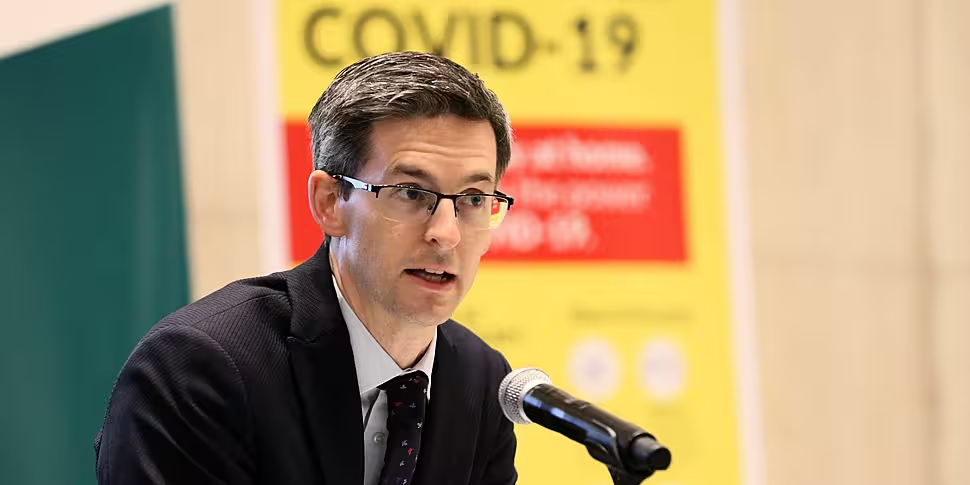The Deputy Chief Medical Officer Dr Ronan Glynn has said Ireland is 'on the cusp' of deploying 'at least two' COVID-19 vaccines as part of a national vaccination programme.
He said this is pending authorisation by the European Medicines Agency (EMA).
Dr Glynn has also moved to reassure the public, suggesting nothing about the development of a vaccine implies that short-cuts have been taken.
Normally it takes about 10 years to develop a new vaccine - but Dr Glynn said there are "several reasons" why this timeline has been cut down for COVID-19.
He said this is down to "enormous levels of investment and scientific and medical research", on a scale never previously seen in vaccine development.
While because of the high number of new cases across the world, the vaccine trials were able to quickly measure differences in disease risk between those who received the vaccine, and those who got a placebo.
And he said that many of the processes, which normally take place one after the other in vaccine development, have instead been running in parallel.
"For example, large scale manufacturing of vaccines started even before the results of phase three trials were available", he explained.
And he added: "Regulators and those developing the vaccines started their conversations very early in the process, so that the regulators were aware of developments and so that the process of authorisation can now be as swift as possible."
"None of these factors imply that safety, scientific or ethical integrity have been compromised, or that short-cuts have been taken", Dr Glynn said.
Vaccine uptake
He also said people "can be confident" that the successful implementation of a vaccine programme "will mark a significant advance in our approach to this pandemic."
However he said that many uncertainties and barriers still have to be overcome.
He pointed to research which suggests that the majority of people already decided they will definitely (45%) or probably (28%) take the vaccine when it is offered to them.
But he said many people will have questions.
"They will no doubt be faced with rumour and misinformation, particularly online.
"To counter this, transparency and trust must be the cornerstone of our approach to addressing uncertainties and building vaccine confidence."
He said healthcare professionals all across the country will have "a central role to play" in this process.
"Through people’s collective efforts we have avoided to the greatest extent possible the devastating impact that COVID-19 has had across Europe over the past two months, with greater levels of mortality than those experienced last spring.
"But we are not through this yet."
Vaccine roll-out
Dr Glynn also said that a vaccine will not have any positive impact on the trajectory of this disease "for months to come."
"In the meantime, we must continue to hold firm; to paraphrase Mike Ryan, we need to continue to do all we can to save lives now, not the lives we promise to save next year," he added.
Last week, the Cabinet signed off on a 15-stage vaccine roll-out plan.
The first phase will see the jab offered to everyone living in a long-term care facility who is over the age of 65.
The first phases noted that all residents and staff on-site should be considered for vaccination at this stage.
Frontline healthcare workers who are in "direct patient contact" will be offered the jab in the second phase, with those aged 70 and over included in the third.
Ireland has already signed off on Advanced Purchase Agreements with five separate vaccine companies.
This includes 2.3 million doses of the Pfizer/BioNTech vaccine - which is already being distributed in Britain - and 3.3 million doses of the AstraZeneca/Oxford drug.









